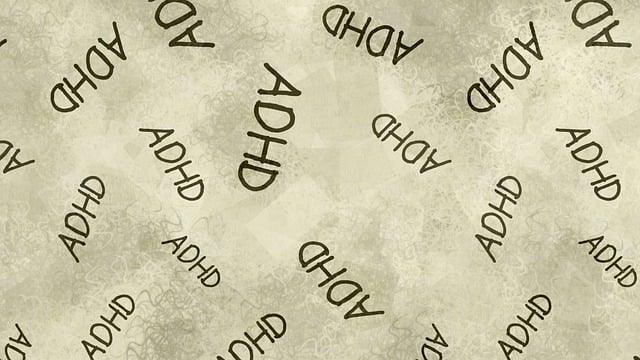Understanding Superior Oppositional Defiance Disorder (SODD) is vital for mental health professionals. Effective therapy requires a nuanced approach, including risk assessment, tailored interventions like stress reduction and coping skills development, and community outreach programs to create supportive environments. Best practices for professionals include setting work-life boundaries, engaging in self-care, and implementing emotional well-being promotion techniques to prevent burnout. Creating safe, communicative spaces with consistent boundaries enhances client resilience and improves SODD therapy outcomes.
Mental health professionals often encounter complex cases, and one such challenge is managing clients with Superior Oppositional Defiant Disorder (SODD) in therapeutic settings. This article explores the intricate risks and best practices surrounding SODD treatment. We delve into identifying potential hazards, from patient non-compliance to boundary issues, offering strategies for mitigation. Furthermore, it highlights the importance of building resilience and creating safe spaces to enhance therapy outcomes for SODD clients, ensuring a more effective and supportive environment.
- Understanding Superior Oppositional Defiant Disorder (SODD) in Therapy Context
- Identifying Risks and Potential Challenges in SODD Treatment
- Best Practices for Mitigating Risks in Mental Health Practice
- Building Resilience and Fostering Safe Therapy Environments for SODD Clients
Understanding Superior Oppositional Defiant Disorder (SODD) in Therapy Context

Understanding Superior Oppositional Defiant Disorder (SODD) is essential for mental health professionals to navigate successfully in therapy contexts. SODD presents as a persistent pattern of angry and defiant behaviour, often directed towards authority figures, lasting at least six months. In therapy, recognizing this disorder requires a nuanced approach, as individuals with SODD may display emotional reactivity, frequent argumentativeness, and a refusal to comply with reasonable requests or rules. Mental health professionals must adapt their strategies to address these challenges effectively.
Treating SODD involves implementing tailored interventions like stress reduction methods and coping skills development to help individuals manage their emotions and improve interactions. Additionally, community outreach program implementation can be beneficial in fostering a supportive environment and connecting clients with resources that promote positive behavioural changes. By integrating these strategies, mental health professionals can better assist those struggling with SODD, facilitating their path towards healthier relationships and improved overall well-being.
Identifying Risks and Potential Challenges in SODD Treatment

Identifying risks is a crucial step in any therapy process, especially when dealing with Superior Oppositional Defiance Disorder (SODD). This disorder often presents unique challenges for mental health professionals, as clients may exhibit defiant behaviors, have difficulty following directions, and show little empathy for others. These traits can create a complex therapeutic environment, demanding tailored strategies and heightened awareness from practitioners.
The Stress Management Workshops Organization emphasizes the importance of risk assessment in SODD therapy. Professionals must consider potential triggers, such as family dynamics, past traumas, or environmental stressors, that might exacerbate symptoms. By identifying these risks, therapists can develop comprehensive treatment plans, incorporating evidence-based strategies for stress management and behavior modification. Effective risk assessment enables mental health professionals to navigate the complexities of SODD, fostering a supportive environment conducive to positive client outcomes.
Best Practices for Mitigating Risks in Mental Health Practice

Mental health professionals are at a unique risk of experiencing burnout and emotional exhaustion due to the demanding nature of their work. To mitigate these risks, several best practices should be implemented. Firstly, Burnout Prevention Strategies for Healthcare Providers such as setting clear boundaries between work and personal life can help maintain optimal emotional well-being. Regular self-care activities like exercise, mindfulness, and adequate sleep are crucial in preventing burnout. Secondly, incorporating techniques for Emotional Well-being Promotion Techniques into therapy sessions can benefit both the professional and their clients. For instance, teaching coping mechanisms and stress management strategies not only enhances the therapist’s resilience but also empowers clients to manage their mental health effectively.
Additionally, developing a comprehensive Risk Management Planning for Mental Health Professionals is essential. This includes regular supervision, peer support, and access to therapy for professionals. Strategies such as Superior Oppositional Defiance Disorder (SODD) Therapy can be integrated into risk management plans to address specific challenges faced by mental health workers. By prioritizing their own well-being, mental health professionals can better serve their clients, ensuring a healthier and more sustainable career trajectory.
Building Resilience and Fostering Safe Therapy Environments for SODD Clients

Mental health professionals working with clients diagnosed with Superior Oppositional Defiance Disorder (SODD) need to prioritize building resilience and creating safe therapy environments. SODD is characterized by frequent anger, argumentativeness, and defiance, which can create challenging therapeutic scenarios. Professionals must be adept at managing intense emotions and providing consistent boundaries while fostering a sense of trust and understanding.
To enhance resilience, therapists should incorporate self-care practices into their routines, ensuring they maintain emotional regulation. This includes setting realistic expectations, utilizing evidence-based techniques tailored to SODD, and cultivating a supportive atmosphere that encourages open communication. By implementing robust risk assessment strategies and prioritizing the well-being of both professionals and clients, mental health practitioners can effectively navigate the complexities of SODD therapy, ultimately improving treatment outcomes.
Mental health professionals play a pivotal role in assisting individuals with Superior Oppositional Defiant Disorder (SODD) in their therapeutic journey. By understanding the unique challenges presented by SODD, such as its impact on treatment relationships and potential risks to both clients and therapists, practitioners can implement effective strategies for risk assessment and mitigation. Adopting best practices, fostering safe environments, and building resilience are essential to ensure successful outcomes for SODD clients while also safeguarding the well-being of mental health professionals. These comprehensive approaches not only enhance therapeutic experiences but also contribute to the overall improvement of mental health care.














